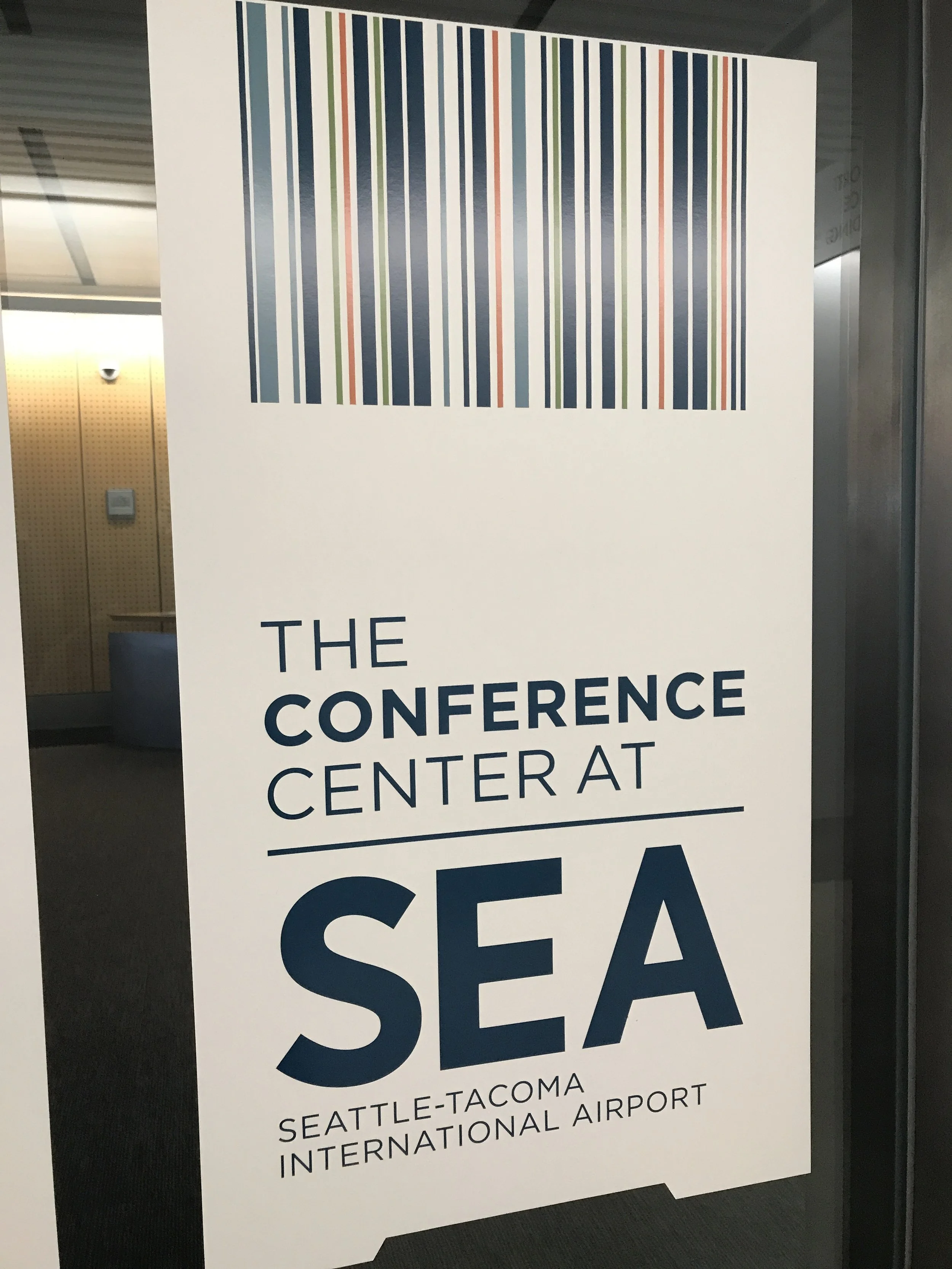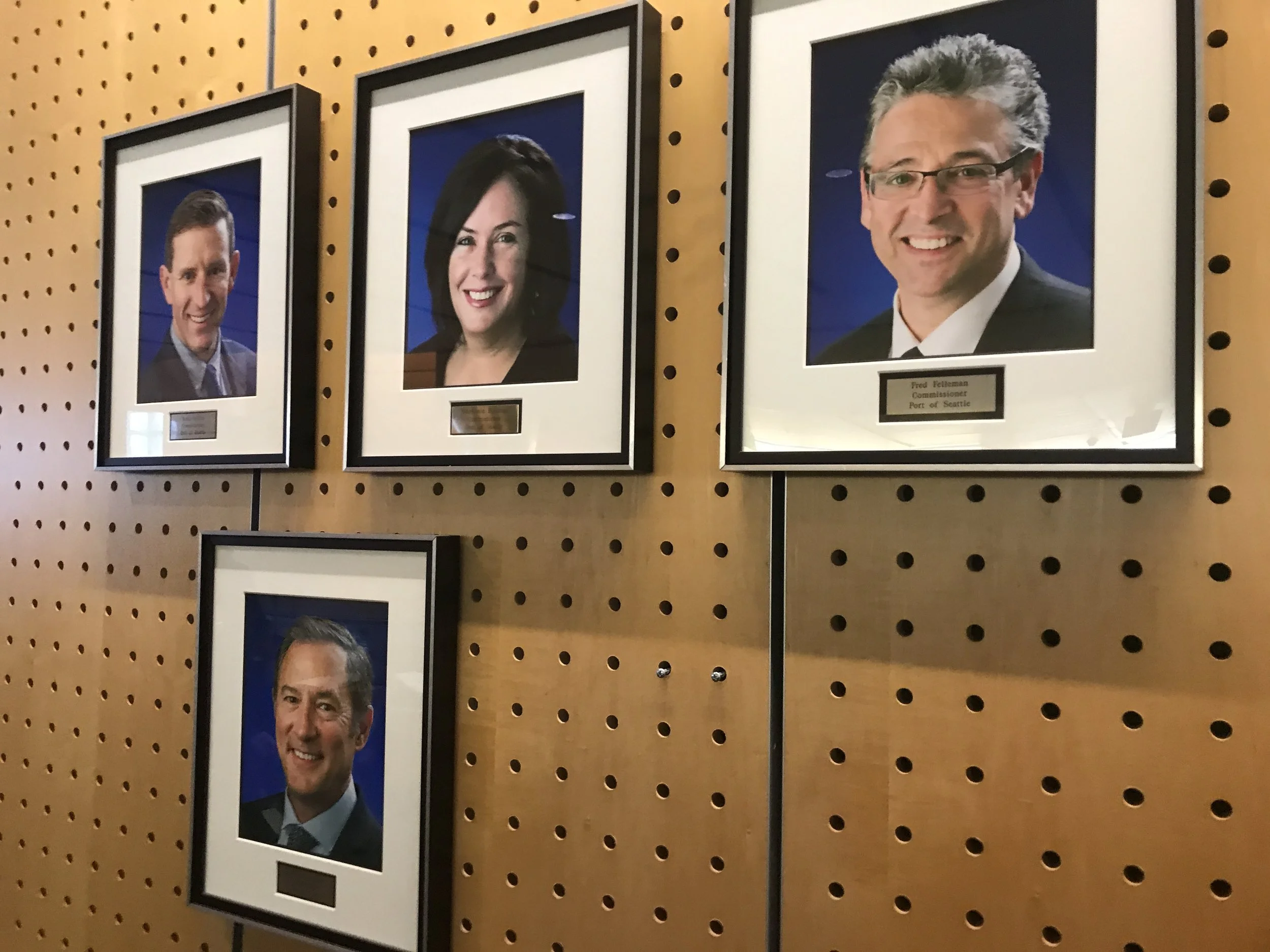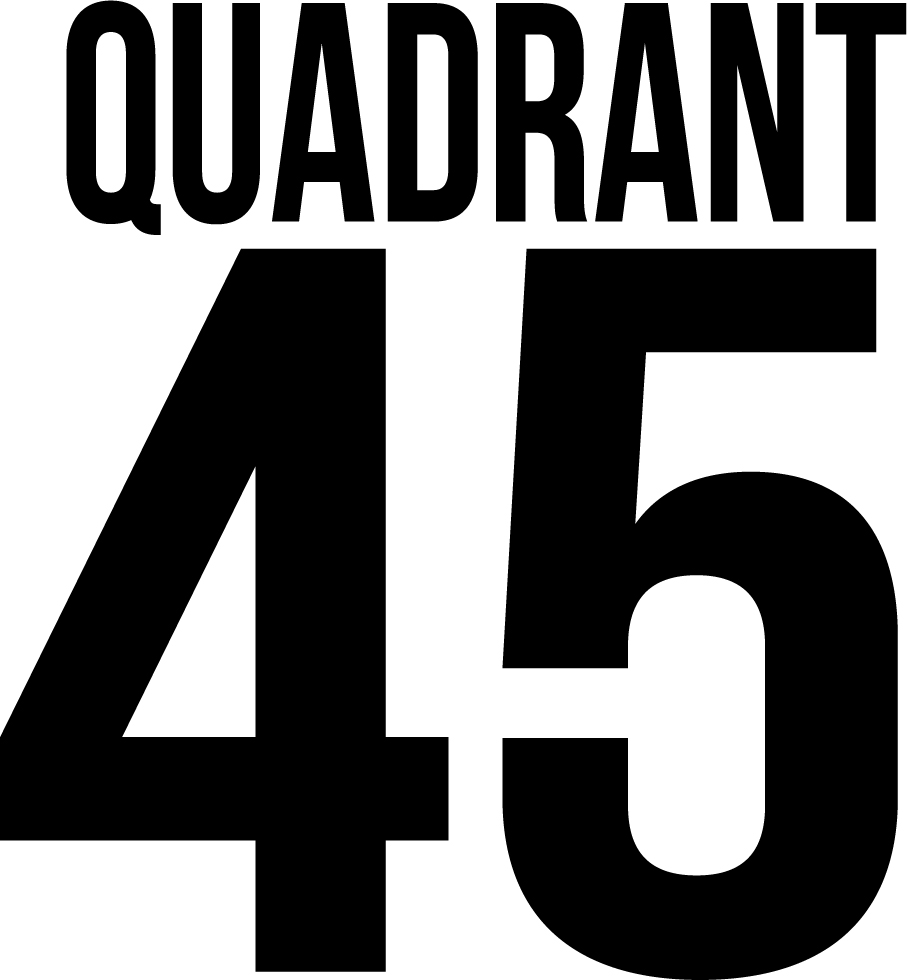The Briefing Project
ABOUT THE BRIEFING PROJECT
Seeking to change the course of an $670 Million government agency, one citizen seeks to “brief” five elected officials making a choice between untethered economic growth and harm to humans and the environment that results from airplane noise and emissions - all during public meeting comments, two minutes at a time, over twelve-months.
The Briefing Project is an in-production documentary blending investigative journalism, citizen activism, editorial commentary, and a bit of reality-show "it's happening right now" intensity.
Getting started? All episodes can be watched on this page; or read the transcript for Episode 1 below!
EPISODE 1 – THE BRIEFING YOU SHOULD HAVE HAD
January 30, 2018
"Nine months ago, this commission asked for briefings from the FAA, and from your staff. These briefings were supposed to address questions about “the impacts of NextGen flight procedures on local communities”. And questions about the FAA’s role” in “addressing aircraft noise and other community impacts.” And how these issues impact our “quality of life.”
But you never actually got the briefings you asked for.
Now, it is true that on April 25th, the FAA and your staff did each make presentations. They lasted 43 minutes. But these presentations - if we measure them by the topics they chose to omit – were misleading.
They spoke about the benefits of NextGen, but they failed to brief you on the developing scientific record about the harm to human health from increased aircraft noise and emissions. They failed to brief you on the rebellions underway in communities across the country because of NextGen. They failed to brief you on the nationwide lawsuits against the FAA over NextGen. And they failed to brief you on pending state and federal legislation seeking to address the danger to human health and the environment from NextGen’s increased aircraft operations.
In light of these omissions, I think it is fair to conclude that the April 25th presentations were … incomplete. And inadequate.
I’ve come here to give you the briefing that you actually asked for. The full-story, no sugar-coating, fact-based briefing that you should have had.
Of course, this is public comment. So my briefing will come to you in two-minute public comment segments. I commit I will spend the no more time – 43 minutes – than you provided the FAA and staff. I expect it will take 10 months to complete.
My briefing will continue at the next public comment. Thank you."
Learn more at www.thebriefingproject.com.
Follow us on Facebook.
Read The Briefing Project’s proposed Port of Seattle Airport Neighbor Community Accords introduced in Episode 13, courtesy of the B-Town Blog.
* * *
ONE YEAR LATER - THE FINAL EPISODE
THE BRIEFING PROJECT
EPISODE 19 – Fini – March 12, 2019
Thank you, Commissioners. My name is Steve Edmiston. As I stated when I began just over one year ago, I am here to give you the briefing that you actually asked for from the FAA and your staff about the impacts of aircraft noise and emissions on our quality of life in the airport neighbor communities. My goal has been to provide the – and I’m quoting myself – the full-story, no sugar-coating, fact-based briefing that you should have had. Because I am limited to public comment, I have been giving you this briefing in two minute segments, now 21 comments to date.
Because this is the final public comment for this phase of The Briefing Project, and because I believe we have all maintained a high bar of civility in this very democratic process, I beg your discretion today – I intend to go long. I don’t think it will be too long – a few extra minutes. And while I know going beyond the red-light buzzer may violate Port Bylaw Article VI, Section 10(e)(1), I also know that it is within the discretion of the Presiding officer and your Bylaws to set, reset, and expand the time. So, as Serenity’s Captain Reynolds once said, “I aim to misbehave.” Even if just a little bit. I hope you grant this one-time indulgence, although being dragged away from a microphone by security is almost always good for a filmmaker when film is rolling.
I shall return to provide you copies of the press kits I’ll be using as The Briefing Project moves to its next phase – production of the documentary. Each contains a full transcript of the briefing; all slides and related documents; and a few surprises.
Today I do want to acknowledge some very good things the Port has in done this past year. To frame them, we must review the stakes of this project. As stated in last June’s film theory episode “Intermission,” the stakes in a film story are defined by a quest. The stakes might be to destroy a Death Star. Or save Private Ryan. Or expose the Watergate cover-up in All the President’s Men.
Here, the stakes were conveyed in last November’s The Lost Cause episode. They are this: will any of you act to adopt the 10 Port of Seattle Airport Neighbor Community Accords to secure Port action to protect our health and the environment? As I advised four months ago, the Accords are designed to provide citizens a simple, ongoing, public measurement – a scorecard for how each of you act, or fail to act, respond or fail to respond, to the information provided in this briefing. Any one of you can introduce these Accords, and they can be implemented to the extent permitted by law, just as you have done on issues you care passionately about such as immigration, climate change, and human trafficking. As such, the Accords are within your authority. Your action, or inaction, simply reflects your choices and values.
Notably, I am no longer alone seeking your adoption of the Accords, which have now been endorsed by Quiet Skies Puget Sound, the Burien Quiet Skies Coalition, and the City of Des Moines, and a number of candidates for office in the 2019 elections. I hope that the new League of Quiet Skies Voters will use the Accords as a tool for candidate forums and evaluations. While some will eventually publicly oppose the Accords – for the record – that has not happened yet.
If the objective measurement of progress is based upon adoption of the Accords, then in four months, the record – the gradebook – the scorecard – is by definition, zero for ten, or zero percent, or in the comedic language of Animal House, you’ve matched Mr. Blutarsky’s infamous GPA of zero-point-zero.
In fairness, a much better picture is painted if we give partial credit for actions that can fairly be associated with the Accords. In a partial credit context, one can argue the scorecard is much improved, and we see a bit of spectrum of good, bad, and ugly.
The good includes your action that associates the Second Accord – that transparency requires an independent audit of the over $400 million historically claimed as Port-funded airport mitigation expenditures since 1985. A non-independent audit, of undisclosed scope, is underway.
The good includes action that associates the Fourth Accord – that tax levy money can and should be prioritized for mitigation. In December, the South King County Support Program was created with a five year, $10 million, first-time in history use of tax levy money for this purpose.
The good includes action that associates with the Eighth Accord, to support the establishment of a commission to site a new primary commercial airport.
The good may – or may not – include actions relating to the Fifth, Sixth, and Seventh Accords – establishing a nighttime curfew, remedying failed 3rd Runway usage commitments, and raising glide slopes, respectively. The outcomes on these issues are very much in doubt in the context of the StART committee, where the Port has not taken exercised its leverage or used its leadership position to move industry stakeholders to the community outcomes specified in the Accords.
To be sure, upon scrutiny, each of these good actions are flawed. To be sure, these flaws could be fully cured by adoption of the associated Accords.
The bad on the Port’s current scorecard includes the failure to act on the First Accord, which merely asks for a policy statement that “Protecting the health of humans and the environment impacted by current and future Port of Seattle airport operations is a paramount duty and pre-condition to the increased frequency of aircraft operations.” The primary action sought is simple reversal of the January 2018 bylaw amendments deleting, among other things, a dependence upon protecting our “quality of life”. I’m still not sure how this can possibly be controversial.
The bad also includes the failure to act on the Ninth Accord – reformation of the wholly ineffective citizen complaint process; and the Tenth Accord, which requires a moratorium on capital projects that expand overflight capacity – which is quite sensibly tethered only to a low-bar ask - the development of a comprehensive plan to protect health and the environment is achieved. Just a plan. This last Accord has recently been mirrored by Burien’s 2019 Resolution No. 406.
The singular ugly – which impacts transparency, trust, accountability, and culture – is the failure to take action on the Third Accord, which requires a policy of non-interference with independent health and environmental studies. It doesn’t get any simpler than non-interference, unless, you know, you plan on interfering. But here the gravest concern is a new twist – the learning that where the Port does not control the study scope, or the study, or the outcome, the Port staff seeks to distance itself from the science. The most recent is ongoing – that the Port staff is actively choosing to ignore the best science now available on this planet – the World Health Organization’s 2018 Environmental Noise Guidelines – relating to the harms from aircraft overflight noise. No fewer than three sources have stated to that your staff refuses to use the W.H.O. Report because they don’t have to, claiming it does not presently reflect the now outdated and more dangerous U.S. federal 65 DNL standard. This refusal to address the W.H.O. science was cryptically presented in your Scoping Report Briefing Slide No. 11, which identified the community request for an impact study below the federal standard. Slide 11 expressly rejects this request without mentioning the W.H.O. Report and simply states the “next step” is to “use FAA-established significance thresholds.” What Slide No. 11 means: your staff is consciously ignoring the planet’s best science on the impacts of aircraft overflight noise. Slide No. 11 is code for minimum regulatory compliance. This is the polar opposite of the staff’s oft-promised “robust environmental review.” There is no law that prevents the study of the noise impacts to our communities based on the known science. And if it is true that your staff will ignore the science because, at least for now, they can, then it is also true that the one story that I told you I did not want to tell - the story about what happens when a government agency fixates on economic growth, uses minimum regulatory compliance as a shield, and fails to intervene on behalf of humans and the environment when presented with science about harm – in other words, when a government runs the big tobacco playbook against its own citizens – that story will now become the story. Slide 11 is the big tobacco playbook. Right in front of you. I have never used the word shame in this entire year before this date – but on its face, this appears truly shameful. It is negligent. It is dishonorable. I could go on. There are at least 39 synonyms for shameful. I looked ‘em up. Sadly, they all apply. I implore you to fix this ugliness. Immediately. Do not let your staff bury the World Health Organization Report. And note that the W.H.O. Report is expressly referenced throughout the Accords.
Listen to your citizens. They do support your green and bio-fuel initiatives, but they cannot understand why you do not bring the same drive and passion, resources and leadership, to protecting our health, our families, and our wondrous Puget Sound environment. Your citizens want you to stake out a world leadership position in finding the most innovative ways to protect our quality of life so we can all work in true partnership seeking sustainable growth.
Thank you – quite sincerely – for giving this citizen an entire year to comment.
www.thebriefingproject.com

The Briefing Project
Every new movie project needs a great poster. Wanted a natural environment pic with a very isolated man beneath an intimidating presence from above.

The Briefing #1: The Briefing You Should Have Had

The Briefing #2: Transparency

The Briefing #3: You and Me

The Briefing #4: What Went Wrong

The Briefing: A Time Out

The Briefing #5 What Went Wrong Part 2

The Briefing #6 What Went Wrong Part 3

The Briefing #7: The FAA Strikes Out

The Briefing: Intermission
Film theory! Who knew?

The Briefing #9: Numbers
There are only two questions.

The Briefing #10: What Did You Know and When Did You Know It?
Just added 97,000 more annual flights. Going to add another 80,000. Now, what is the science saying?

The Briefing #11: PROOF

The Briefing #12: WHO to Believe

The Briefing #13: The Lost Cause
The Briefing #14: Accords (or Context is Everything)

The Briefing #15: Suits

The Briefing #16: 'The Myth of No Choice' 1/8/19

The Briefing #17: The Myth of Engagement 1/22/19
Maverick! Engage!

The Briefing #18: When Words Matter 2/26/19

The Briefing #19: Fini 3/12/19
The last - of TBP phase I. Documentary next!

